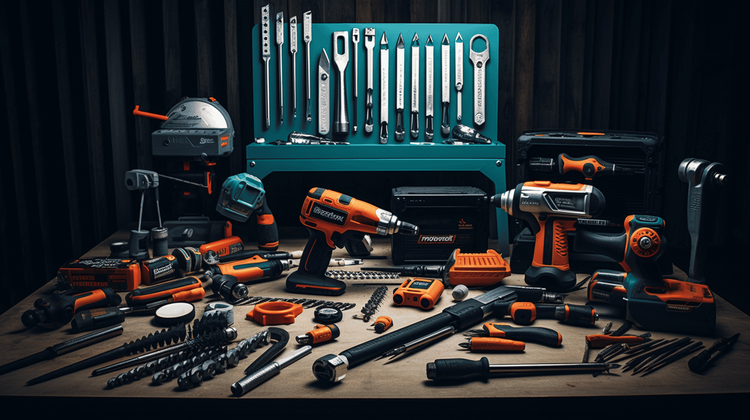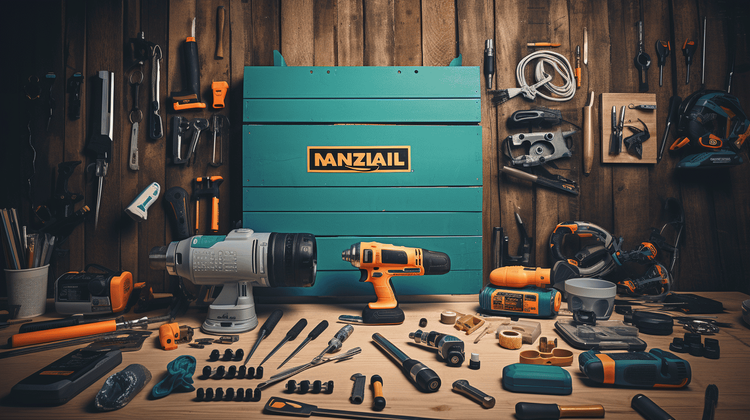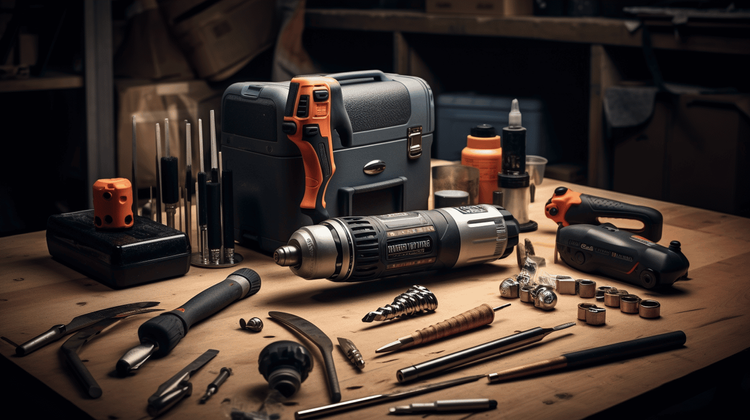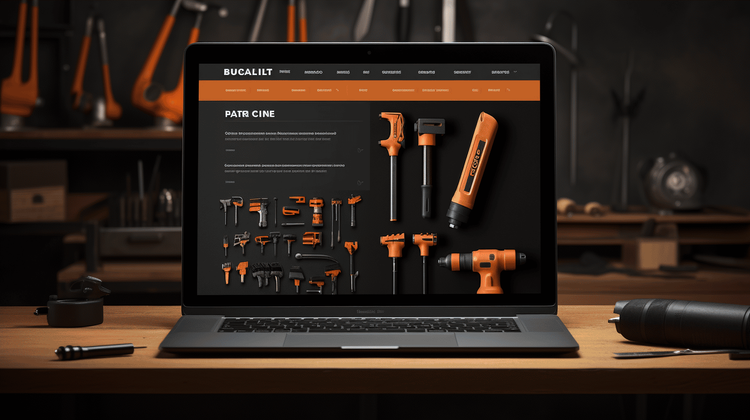Quality vs. Prices: Making the Right Choices for Your DIY Tools
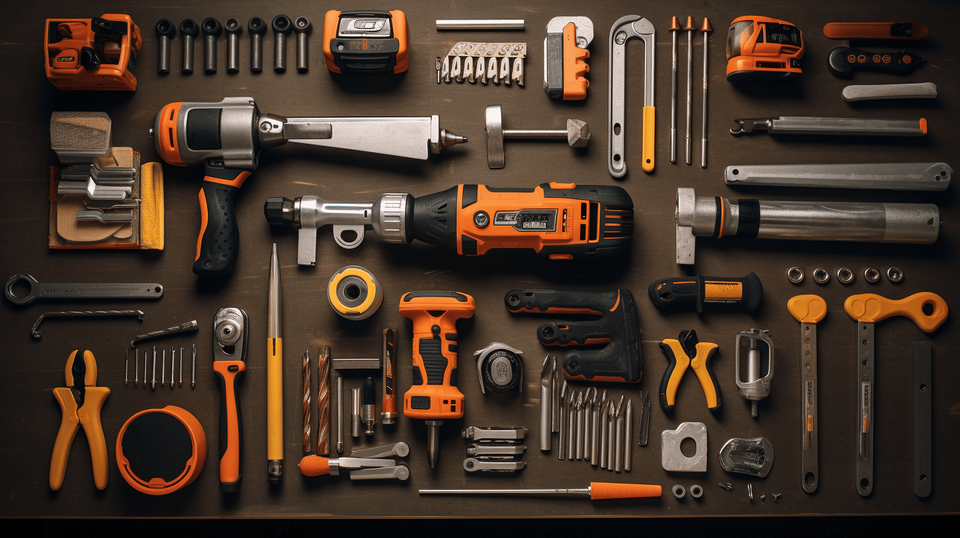
Let's set our sights on the world of DIY and the power tools that make it happen. If you've ever browsed the aisles of a home improvement store or sifted through online catalogues, you'd be familiar with the overwhelming variety of tools available. From electric screwdrivers to power washers, each tool carries its own unique blend of function, features, and pricing. But let's cut to the chase, the question we're often left grappling with - should we prioritize quality or price when choosing our DIY tools?
It's a timeless debate, whether you're a seasoned DIY enthusiast, or just dipping your toes in the vast ocean of home projects. It's the knock-down, drag-out battle of quality against price - a match up as classic as rock, paper, scissors, but with arguably higher stakes because, hey, your hard-earned money is on the line! Plus, let's remember, it's not just about DIY; it's about crafting dreams with your own hands! So buckle up, we're taking a deep dive into the world of DIY tools, helping you understand the significance of quality vs. price and arming you with the knowledge you need to make informed decisions for your toolbox. After all, the right tool can mean the difference between a triumphant "I did it!" and a frustrated "Why won't this thing work?". 🛠️
Understanding DIY Tools
Almost everyone has had a moment where they wished they had the right tool for some kind of home-improvement task or a creative DIY project. Whether it's a drill for hanging a picture, a jigsaw for a crafting job, or a crowbar for minor demolition works, the need for DIY tools is undeniable. But with so many options jostling for attention in the market, how can a novice DIY enthusiast or a homeowner looking to maintain their property decide which tools to invest in? 😕
Brief Overview of DIY Tools
DIY tools are the backbone of any do-it-yourself project. They come in a dizzying array of shapes, sizes, and functionalities. Here are some of the essential tools a DIYer could consider adding to their belt:
- Hammer: Good for nails, but also a useful tool for forced, blunt impacts.
- Screws and Screwdrivers: These come in different sizes and types for various applications.
- Wrenches: While they come in a based variety, an adjustable wrench can be handy.
- Pliers: Depending on the type, they can cut, bend, or twist wires.
- Power Tools: These include drills, saws, and sanders, and are essential for heavy-duty tasks.
- Tape Measure: Every proper job starts with accurate measurement. This tool is indispensable.
- Step Ladder: For reaching high places. Always make sure it's sturdy and safe!
- Safety Gear: Never underestimate the importance of safety glasses, masks, and gloves.
Remember, the tools can only be as good as the hands that wield them. So, don't forget to practice using them to gain confidence and efficiency. 💪
Importance of Quality DIY Tools
When we say quality, we don't necessarily mean the most expensive. What we're talking about is the effectiveness and reliability of the DIY tools. A quality tool can mean the difference between a successful, well-accomplished job and a project full of frustration. Here's why investing in quality DIY tools is a wise decision:
- Durability: Quality tools often last longer. They withstand the rigor of repeated use without failing, giving you value for your investment.
- Efficiency: Using quality tools can make your work move more swiftly. They can deliver better results with less effort.
- Safety: High-quality tools are usually designed with safety features to mitigate injury risks.
In a nutshell, understanding the types of tools available, combined with an insight into why quality matters, can help a homeowner or DIY enthusiast accomplish tasks more efficiently and safely. As illustrated in our guide to Understanding DIY Tools, putting a little more thought into your tool selection can greatly enhance your DIY projects, providing satisfaction and enjoyment along the way. 😃
Quality vs Prices: A Deeper Look
If you've ever found yourself debating whether to invest in the high-priced, internationally recognized tool or to opt for the cheaper, less-known brand, then look no further! This super informative article is just for you. We're going to delve into the fascinating world of quality versus prices, particularly when it comes to tools, and trust us, it's going to be an eye-opener. By the end of this read, you'll understand why we often say, quality is king! 🤴
The True Cost of Low-Quality Tools
Now, let's ruffle through the bargain bin. Low-cost tools may seem alluring at first glance because hey, who doesn't love saving a few bucks? 🤷♀️ Yet, the real question is, what are you truly signing up for when you settle for these cheaper alternatives?
- Durability – Low-price tools tend not to stand the test of time. They're often made with low-grade materials and lack robust construction. It's ironic how a tool bought to fix things is the first one to crumble. 🙄
- Performance – While your low-quality tool may initially perform well, don't be too quick to rejoice. Over time, its efficiency may decline, leading to poor outcomes, and nobody likes a half-done job! 😤
- Increased long-term cost – Ironically, opting for these low-quality, pocket-friendly tools often result in higher long-term costs. Imagine constantly replacing a broken tool or having to hire a pro because your tool couldn't do the job. Cha-Ching! 💸
Remember that old saying, "Buy cheap, buy twice?" Now you know where it came from!
Why High-Quality Tools are Worth the Investment
Juxtapose these challenges with the immense benefits of high-quality tools, and it doesn't take long to realize why they're worth that extra dollar.
- Long life – High-quality tools are built to last. They tend to feature premium-grade materials, boasting superior durability 🗜️. You'll buy the tool once and rest easy knowing it won't give up on you after a few uses.
- Exceptional performance – Premium tools boast top-tier functionality, working effectively and efficiently no matter the task at hand. These tools mean business and they always deliver. That's a promise! 🤞
- Cost-effective in the long term –Sure, they may be more expensive initially, but in the long run, you'll save a fortune on replacements and repairs. Also, let's not forget the pricelessness of a job well done! 😊
So, the next time you're confronted with the quality versus price debate when purchasing tools, take a moment to consider the true cost and value. High-quality tools offer much more than just reliability; they offer peace of mind. A win-win situation, don't you think? 😉
Choosing the Right DIY Tool
Whether you're a seasoned handyman or a curious beginner looking to dip your toes in the world of do-it-yourself projects, picking the right tool is a critical step. Choosing an improper tool can transform a delightful DIY endeavor into a frustrating, inefficient, and, at times, unsafe affair.
Considerations Before Purchasing
Before scooping up every glittering instrument at your local hardware store, take a moment to pause and ponder over a few important factors:
- Purpose: Each tool is specifically designed to perform certain tasks. Try to envisage the projects you'll be undertaking. This will guide you towards the most suitable tools.
- Frequency of Use: If you plan on using a tool regularly, it may be wise to invest in something durable. Otherwise, an economical pick could suffice.
- Ergonomics: Handling a tool should not be a strenuous exercise. Tools should fit comfortably in your hand, have a good grip, and cause minimal strain during extended periods of use.
- Safety: Never underestimate the importance of safety. Certain tools require eye protection, gloves, or other precautionary wears. Be sure to understand these safety requirements.
🔧🔨 While it's tempting to flaunt your DIY prowess with a multitool or a popular gizmo, remember that effective DIYing is about the right tool for the right job, not having the fanciest gadget on the block.
Balancing Quality with Price
The old adage rings true— "You get what you pay for." Cheap tools often don’t have the durability and effectiveness of their better-constructed, albeit pricier, counterparts. But the highest price doesn't necessarily dictate the highest value, either. You have to strike a balance.
- Read Reviews: Assessing reviews and ratings can give you valuable insights into a tool's quality and reliability.
- Research Brands: Familiarize yourself with renowned brands. These manufacturers often offer warranties that bear testament to the product's durability.
- Borrow or Rent: If the tool is pricey and you're aiming for a one-off use, consider borrowing or renting. This could save substantial cost without compromising quality.
Choosing the right DIY tool isn't just about finding the best or the cheapest. It’s about finding value for your money and a tool that you can enjoy using safely and effectively. Don’t rush into a purchase, do your homework, and you'll find the tool that's the perfect match for you and your project. There's an undeniable joy in picking up the perfect tool and knowing it's up to the task, just as you are. So be confident, take the plunge, and happy DIY-ing! 😀
Tips for Making Informed DIY Tool Purchases
Embarking on the DIY journey can be exciting, adrenaline-packed, and incredibly rewarding. It allows you to build things yourself, customize every aspect of your home, or fix issues without calling a professional. However, choosing the right DIY tools can be tricky, especially if you're a beginner. 🛠️ To help you make informed purchases, this article provides you with four insightful tips.
Doing Research on Tool Quality
Just like a knight wouldn't go to battle without a sharp sword, your DIY project requires quality tools. Before throwing your money at the counter, spend some time researching tool quality. You could ask for recommendations from friends or read online reviews and product descriptions.
While you may be tempted to buy the cheapest tool in the store, remember that good quality tools often translate to better and safer output. Quality means durability - a tool that lasts long, performs effectively, and remains safe to use throughout its lifespan.
Identifying Value for Money
Not all expensive tools are worth their price, and not all affordable tools are of poor quality. Identifying value for money is crucial in deciding which tool to buy. So, how can you do this?
- Comparing the price and performance of different brands can be a great start.
- Check the warranty. A tool with a longer warranty usually means the manufacturer trusts in its durability.
- Also, consider how frequently and for what purpose you’d use the tool. It might not be worth spending a lot on a tool you'd only use a handful of times for basic repairs.
Setting a Budget and Sticking to It
Setting a budget not only helps you to avoid overspending but also narrows down your options, making the decision process easier. You might get dazzled by the array of tools on display and end up buying more than what you need.
So, establish your DIY priorities. A long-term plan on what kind of projects you aim to undertake can guide you on the essential tools you might need initially. Eventually, you can scale up as you take up more complex projects.
Keeping an Eye on Sales and Discounts
Lastly, patience is a virtue, particularly where DIY tool shopping is concerned. Most stores have sales and discounts on tools regularly. Waiting for such opportunities can help you save a significant amount. 😊
So now, equipped with these insightful tips, you can make well-informed DIY tool purchases! Happy shopping and happy DIY-ing! 🛍️ 🏡
The Risks of Choosing Price Over Quality
In pursuit of the best deals in town, who hasn't been tempted to choose lower-priced products? 🤔Indeed, saving money is a universal desire. However, when it comes to tools and equipment, opting for the cheaper route may not always be the wisest choice. A person might initially save a few bucks, but it's prudent to weigh the unseen future costs that could pile up. Read on to discover the risks associated with selecting price over quality.
Shortened Tool Lifespan
Would you believe that investing in high-quality tools can actually end up being more cost-effective over the long run? 🤷 Don't be fooled by the initial cost. Cheap tools often end up costing more because they're likely to break down more quickly, leading to frequent replacements.
- High-quality tools are typically more durable, which means they last longer and you’ll end up buying them less frequently.
- The cost of consistently purchasing lower-quality tools can quickly add up, and might surpass the price of a high-quality equivalent
- Short-lived tools equate to unnecessary consumption of resources which isn't environmentally friendly.
Poor Tool Performance
While we're on the subject of quality, let's not forget about performance. The efficacy of your efforts often depends on the reliability of your tools.
- Cheap tools seldom deliver the same efficiency as their higher-end counterparts. They might lack accuracy, power, or speed, impeding your work processes.
- Every tool has a purpose; a poorly functioning tool can frustrate attempts at precision work and hamper productivity.
- The joy of accomplishing a task flawlessly is irreplaceable; it’s worth investing in quality tools that can guarantee this satisfaction.
Safety Concerns
Safety should always be a top priority 🚧 Cheaper tools frequently compromise on safety standards, leading to potential accidents and injuries.
- Quality equipment and tools are engineered with safety measures that cheap versions might not offer.
- Serious mishaps caused by faulty equipment could result in not just physical harm but also legal implications.
- It's better to be safe than sorry; it pays off to invest in quality to ensure a safer working environment.
As the saying goes, "the bitterness of poor quality remains long after the sweetness of low price is forgotten." Next time you face a choice between price and quality, remember these potential risks and make an informed decision. 🧐 Pay now with your wallet, or pay later with your time, energy, safety and even more money.
Conclusion
And there you have it, folks! With all the viewpoints and factors considered, it's clear to see why investing in high-quality DIY tools is visibly the smarter choice 🤓. Not only do you get a superior performance, but you also ensure the longevity of your tools, giving you certainty and efficient results you can rely on.
We understand that prices can be the critical factor leading to your final decision, particularly for pre-professionals and DIY enthusiasts. Thankfully, companies like Ultra Handy are dedicated to supporting such passionate individuals! Offering reasonably priced, quality tools, like our best-selling Bit Holder Keychain for screwdriver bits, Ultra Handy lives to help you succeed in your life and work.
Remember, the price may feel a bit cheaper in the short term, but quality will save you money and headaches in the long run. So, weigh your alternatives wisely, do your research, and make informed decisions when choosing your DIY tools. The result? You'll be one step closer to becoming the master of your craft! After all, the magic is in your hands. You just need the right tools to make it happen! 😉 Happy DIY-ing, folks! 💪💡🔧
Please note that this advice should be taken into account along with individual needs and circumstances. Always prioritize safety and consult with professionals when necessary. Don't compromise on the quality of your tools—your project, time, and safety are worth the investment.
Frequently Asked Questions
- What should I prioritize when choosing DIY tools - quality or price?When choosing DIY tools, it's best to prioritize quality over price. Investing in high-quality tools ensures better durability and performance, making your DIY projects more efficient and safe in the long run.
- Are expensive tools always of higher quality?Not necessarily. While expensive tools often indicate better quality, it's important to research and read reviews before making a purchase. Look for reputable brands known for their quality and reliability rather than solely relying on price as a determinant.
- Can I find affordable DIY tools without compromising on quality?Yes, you can find affordable DIY tools without compromising on quality. Look for sales, promotions, or discounts offered by reputable brands. Additionally, consider purchasing second-hand tools from reliable sources, as they can often offer good quality at a lower price.
- What are the potential drawbacks of choosing low-quality tools?Choosing low-quality tools can lead to subpar results, increased risk of accidents or injuries, and frequent replacements, ultimately costing you more in the long term. Poorly made tools may also lack essential safety features and fail to perform as expected.
- How can I make informed decisions when buying DIY tools?To make informed decisions when buying DIY tools, research different brands, read reviews from trustworthy sources, consider your specific needs and budget, and evaluate the warranty and customer support offered by the manufacturer. Make a well-informed choice based on a balance of quality, price, and long-term value.
